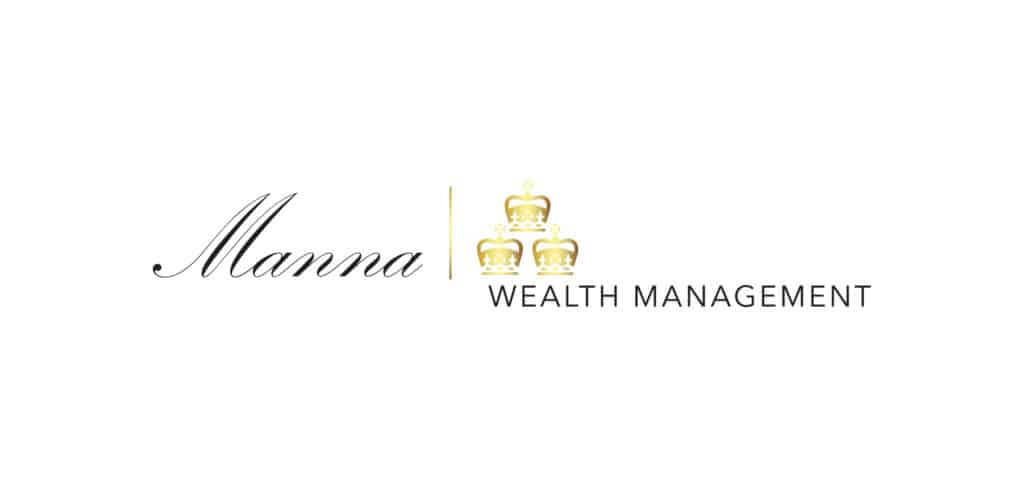Understanding Early Retirement
Planning for early retirement is a goal that many individuals aspire to achieve. The concept of leaving the workforce earlier than the traditional retirement age can be enticing, offering more freedom, flexibility, and time to pursue personal interests. However, early retirement requires careful financial planning and preparation to ensure a comfortable and sustainable future. In this article, we will explore the steps involved in planning for early retirement and provide guidance on how to achieve this goal.
1.1 What is early retirement?
Early retirement refers to the act of leaving the workforce and entering retirement before reaching the standard retirement age, which is typically around 65 years old. It allows individuals to transition from their career earlier than expected, providing an opportunity to enjoy a more relaxed lifestyle and pursue personal passions.
1.2 Why is early retirement appealing?
Early retirement offers several benefits that make it appealing to many individuals. Firstly it provides more time for leisure activities, hobbies, and spending quality time with family and friends. Additionally, early retirees have the flexibility to travel and explore new experiences while they are still relatively young and healthy. Moreover, early retirement allows individuals to escape the stress and demands of the working world, offering a chance to prioritize personal well-being and fulfillment.
-
Assessing Your Financial Situation
Before embarking on the journey of early retirement, it is essential to evaluate your financial situation thoroughly. This assessment wis designed to help ou determine whether you are financially prepared to retire early and identify any gaps that need to be addressed.
2.1 Calculate your retirement savings goal
Start by estimating the amount of money you will need to sustain your desired lifestyle throughout your retirement years. Some factors to consider are such as living expenses, healthcare costs, and any future financial goals or aspirations. By calculating your retirement savings goal, you can determine the amount you need to save and invest to achieve a comfortable retirement.
2.2 Evaluate your current expenses
Review your current spending habits and identify areas where you can reduce expenses. This evaluation will enable you to optimize your budget and allocate more funds towards retirement savings. Look for opportunities to cut unnecessary costs without sacrificing your quality of life.
2.3 Analyze your sources of income
Assess your existing sources of income, such as savings, investments, pensions, or rental properties. Determine the reliability and sustainability of these income streams in supporting your early retirement. It is crucial to have a diverse range of income sources to ensure financial stability during retirement.
-
Creating a Retirement Plan
Once you have assessed your financial situation, it is time to create a comprehensive retirement plan tailored to your goals and circumstances. This plan will serve as a roadmap to guide your financial decisions and ensure a smooth transition into early retirement.
3.1 Set a timeline and financial target
Establish a timeline for your early retirement, taking into account your current age, financial obligations, and desired lifestyle. Additionally, set a specific financial target that aligns with your retirement savings goal. Having a clear timeline and financial target will help you stay focused and motivated throughout the planning process.
3.2 Develop a budget and savings plan
Create a detailed budget that outlines your projected expenses during retirement. Consider factors such as housing, healthcare, transportation, and leisure activities. With a clear understanding of your future expenses, you can develop a savings plan that allows you to accumulate the necessary funds to support your early retirement lifestyle.
3.3 Explore investment options
Investments play a crucial role in building wealth and generating passive income during retirement. Research different investment options such as stocks, bonds, mutual funds, real estate, or retirement accounts. Seek professional advice if needed to make informed investment decisions that align with your risk tolerance and financial goals.
-
Managing Debt and Expenses
To ensure a financially secure early retirement, it is essential to manage debt effectively and minimize unnecessary expenses.
4.1 Paying off high-interest debt
Prioritize paying off high-interest debt, such as credit card balances or personal loans. These debts can significantly hinder your financial freedom during retirement. Develop a debt repayment plan and consider consolidating or refinancing debt to lower interest rates and streamline payments.
4.2 Minimizing unnecessary expenses
Review your current expenses and identify areas where you can cut back. Look for subscriptions or services that you no longer need or can find more affordable alternatives for. By minimizing unnecessary expenses, you can redirect those funds towards your retirement savings.
4.3 Downsizing and simplifying lifestyle
Consider downsizing your living arrangements or adopting a simpler lifestyle to reduce costs. Evaluate whether your current home is suitable for retirement and explore options that may offer financial advantages, such as smaller homes or retirement communities. Simplifying your lifestyle can help free up resources and ease the financial burden of early retirement.
-
Building a Diverse Income Stream
To sustain an early retirement, it is crucial to build a diverse income stream that provides stability and flexibility.
5.1 Identify potential income sources
Research potential income sources that align with your skills, interests, and financial goals. This could include part-time work, freelancing, rental properties, dividends from investments, or royalties from creative endeavors. Diversifying your income sources will reduce reliance on a single stream and increase your financial resilience.
5.2 Develop additional skills or side hustles
Consider developing new skills or pursuing side hustles that can generate additional income. This could involve taking courses, attending workshops, or exploring entrepreneurial opportunities. Embracing lifelong learning and adaptability will enhance your earning potential and open up new avenues for income generation.
5.3 Leverage technology and the gig economy
Take advantage of technology and the gig economy to explore flexible work opportunities. Platforms and apps offer various freelance or remote work options that can be tailored to your preferences and availability. Leveraging technology allows you to work on your own terms and supplement your retirement income.
-
Considerations for Healthcare and Insurance
Healthcare and insurance are critical aspects of retirement planning, especially as medical expenses tend to increase with age.
6.1 Research health insurance options
Investigate health insurance options available to you, including private insurance plans or government programs. Research their coverage, costs, and eligibility requirements to ensure that you have adequate healthcare coverage during your retirement years.
6.2 Understand Medicare and other benefits
Educate yourself about Medicare, a federal health insurance program available for individuals aged 65 and older. Understand the different parts of Medicare, their coverage, and enrollment periods. Additionally, explore other benefits such as long-term care insurance or supplemental insurance plans to fill any gaps in coverage.
-
Maintaining a Healthy Lifestyle
A healthy lifestyle is crucial for enjoying a fulfilling and active retirement.
7.1 Focus on physical and mental well-being
Prioritize your physical and mental health by engaging in regular exercise, maintaining a balanced diet, and practicing stress-reducing techniques. By taking care of your well-being, you can maximize your enjoyment during retirement and reduce the risk of healthcare-related expenses.
7.2 Plan for leisure activities and hobbies
Consider how you will spend your time during retirement and plan for leisure activities and hobbies that bring you joy and fulfillment. Whether it’s traveling, pursuing creative endeavors, volunteering, or engaging in outdoor activities, having a well-rounded retirement lifestyle will contribute to your overall happiness and well-being.
-
Seek Professional Financial Advice
Throughout the early retirement planning process, it can be beneficial to seek guidance from a financial advisor.
8.1 Consult with a financial advisor
Find a financial advisor who can provide personalized advice tailored to your specific financial situation and retirement goals. They can help you navigate complex financial decisions, optimize your investment strategy, and ensure that you are on track to achieve your early retirement objectives.
8.2 Stay informed about retirement plans and policies
Stay up to date with changes in retirement plans, policies, and tax regulations. This can help you to adapt your retirement plan accordingly and take advantage of any new opportunities or incentives that may arise.

Early Retirement
Conclusion
Planning for early retirement requires careful consideration, financial discipline, and a clear roadmap. By understanding the concept of early retirement, assessing your financial situation, creating a retirement plan, managing debt and expenses, building a diverse income stream, considering healthcare and insurance, maintaining a healthy lifestyle, and seeking professional financial advice, you can set yourself on a path towards a successful and fulfilling early retirement.
FAQs
- When should I start planning for early retirement?
It is never too early to start planning for early retirement. The sooner you begin, the more time you have to save and invest for your future. Ideally, it is recommended to start planning in your 30s or 40s, but even if you are closer to retirement age, it’s important to evaluate your options and make the necessary adjustments.
- How much money do I need to retire early?
The amount of money you need to retire early depends on various factors such as your desired lifestyle, anticipated expenses, and expected lifespan. It is recommended to aim for a retirement savings goal that will provide you with a comfortable income to sustain your lifestyle throughout your retirement years. Find a financial advisor who can help you calculate a target amount based on your specific circumstances.
- Can I retire early if I have outstanding debt?
While it is ideal to retire with minimal or no debt, having outstanding debt does not necessarily mean you cannot retire early. However, it is important to factor in debt repayment into your retirement plan. Prioritize paying off high-interest debt and consider how your retirement income will accommodate debt payments without compromising your financial stability.
- What are some potential risks of early retirement?
Early retirement comes with certain risks, such as a longer retirement period, potential healthcare costs, and market volatility affecting investment returns. It is crucial to have a well-structured retirement plan, including contingencies for unforeseen circumstances, to mitigate these risks. Regularly reviewing and adjusting your plan can help address any potential challenges.
- Is early retirement suitable for everyone?
Early retirement may not be suitable for everyone, as it depends on individual circumstances and financial readiness. It requires careful planning, disciplined savings, and consideration of future financial needs. Assessing your financial situation, consulting with professionals, and weighing the pros and cons will help determine if early retirement aligns with your goals and aspirations.
For more information, visit www.mannawealthmanagement.com or contact info@mannawealthmanagement.com.

Disclaimer: The information and opinions expressed herein have been obtained from sources believed to be reliable but are not guaranteed for accuracy or completeness; are for information/educational purposes only; do not constitute a solicitation or recommendation for the purchase or sale of any security; are not unbiased/impartial; subject to change; may be from third parties. Opinions expressed are those of the Author and do not necessarily reflect those of B. Riley Wealth Management or its affiliates. Investment factors are not fully addressed herein. For important disclosure information, please visit www.brileywealth.com/legal-disclosures.



